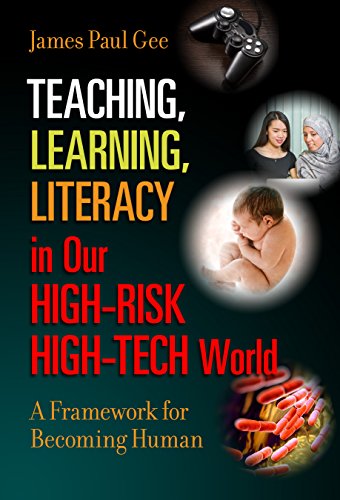Teaching, Learning, Literacy in Our High-Risk High-Tech World: A Framework for Becoming Human by James Paul Gee Link to heading
Summary Link to heading
“Teaching, Learning, Literacy in Our High-Risk High-Tech World: A Framework for Becoming Human” by James Paul Gee delves into the complexities and challenges of education in the modern digital era. The book examines how high-risk and high-tech environments are reshaping learning processes and literacy. Gee presents a framework for understanding educational practices that emphasize becoming more human through the integration of technology and literacy. Key themes include the exploration of digital media’s influence on cognitive development and the role of education in fostering critical thinking and emotional intelligence in today’s interconnected world.
Review Link to heading
James Paul Gee is renowned for his pioneering work at the intersection of education and digital technologies. The book does an excellent job of framing the contemporary educational landscape and presents thoughtful insights into how educators can adapt to rapidly changing technological environments. Strengths of the book include its clear articulation of complex ideas and actionable strategies for educators. However, some readers might find the dense academic style challenging if they are not familiar with educational theories.
Key Takeaways Link to heading
- Integration of Technology: Emphasizes the importance of incorporating technology into educational practices to enhance learning and literacy.
- Critical Thinking: Advocates for nurturing critical thinking skills in students to better navigate and analyze digital information.
- Emotional Intelligence: Highlights the need for emotional intelligence as a pivotal component of education in fostering empathetic and socially responsible individuals.
- Becoming Human: Discusses the concept of education being a means to achieve a more profound sense of humanity in an increasingly technological world.
Recommendation Link to heading
This book is particularly beneficial for educators, policymakers, and researchers interested in the interplay between technology and education. It offers valuable insights for those looking to understand and adapt to the challenges of education in a digital age, providing strategies to cultivate essential skills in learners. Anyone interested in educational theory, digital literacy, and the future of learning would find Gee’s perspectives informative and thought-provoking.
